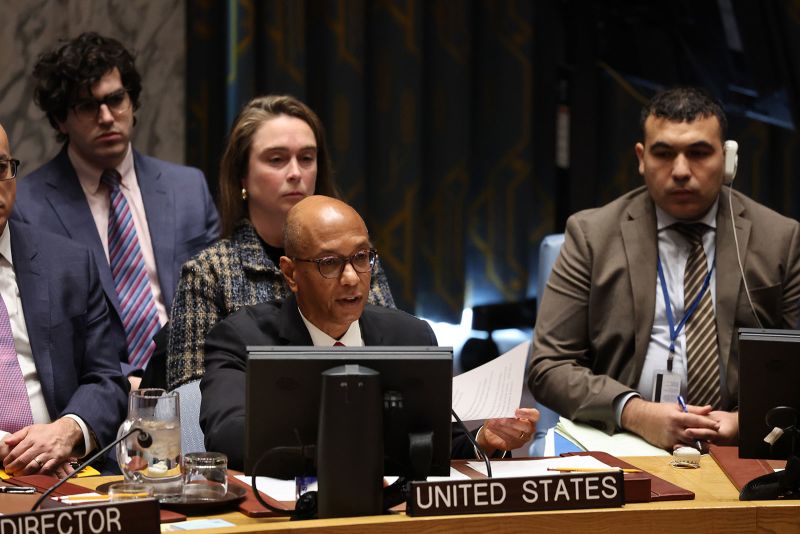
US Vetoes UN Resolution on Gaza Ceasefire, Citing Hostage Concerns
The recent U.S. decision to veto a UN resolution regarding the Gaza ceasefire has sparked debate and controversy within the international community. The resolution, aimed at securing a ceasefire in Gaza and ensuring the release of hostages, was vetoed by the United States on the grounds that it did not guarantee the safe release of hostages held by militant groups in the region.
The U.S. Ambassador to the United Nations, speaking on behalf of the U.S. government, emphasized that while the United States fully supports efforts to secure a ceasefire in Gaza and prevent further bloodshed, the resolution in question did not provide adequate measures to ensure the release of hostages. This stance has drawn criticism from other members of the UN Security Council, who argue that the resolution was a crucial step towards de-escalating the conflict and protecting civilian lives.
The situation in Gaza remains a complex and volatile issue, with ongoing hostilities between Israeli forces and militant groups exacerbating the humanitarian crisis in the region. The indiscriminate targeting of civilians and the use of human shields by militant groups have further complicated efforts to establish a lasting ceasefire and bring an end to the violence.
The U.S. veto of the UN resolution underscores the challenges of finding a viable and sustainable solution to the conflict in Gaza. While the United States has expressed its commitment to ending the violence and protecting innocent lives, the disagreement over the terms of the resolution highlights the divergent perspectives within the international community on how best to achieve these goals.
Moving forward, it is essential for all parties involved to engage in constructive dialogue and work towards a comprehensive and inclusive ceasefire agreement that addresses the root causes of the conflict and ensures the protection of civilians. Only through a concerted and collaborative effort can a lasting peace be achieved in Gaza and the broader region.
In conclusion, the U.S. veto of the UN resolution on the Gaza ceasefire has brought attention to the urgent need for a negotiated settlement that prioritizes the safety and wellbeing of all individuals in the region. As the international community continues to grapple with the complexities of the conflict, it is imperative that all stakeholders remain committed to finding a peaceful and sustainable resolution that upholds human rights and promotes lasting stability in Gaza.
